Exodus - Tumblr Posts
EGYPTIAN GODDESS HEKET
The FIRST PICTURE is the one that my Being upgraded with her in multicolored clothes, and a three pyramids background. Also my Being changed the appearance of her staff, and her ankh brighter: also, her face and eyes brighter; also, my Being gave her an halo.

The SECOND PICTURE below is the original, created and designed by, ARANTXACOSPLAYER.DEVIANTART.COM
Let my Being know what you guys think about my upgrades.

HER STORY: The Egyptian frog goddess Heket, is known to be the very breather of life; she is also known to be the goddess who birthed the gods. She’s mentioned indirectly in the book of Exodus, of the Bible; in whereas, during the second plague of Egypt with the frogs, the magical practicing priests must've invoked Heket to replicate the same miracle plague, in where she did made her frogs come on up also, in the same manner that Aaron (Moses’s Brother) did, and made her own frogs probably go onto the land of Goshen, where the Hebrews resided, and plagued them in the same manner as well. It had to be, otherwise, why would then the God of Hebrews place a demarcation between its people and the people of the pharaoh (after plague no. 3 or 4,) so that the plagues would no longer reach the Hebrews also? Also, before the demarcation was established, the Hebrews complained to Moses that the magical practicing priests did the same thing; probably, suggested that the plagues are in vain when the gods of Egypt are doing the same thing.

Friday Morning in the word 💛
The Moses Controversy
Many scholars and some Theologians claim that Moses did not write the Torah or what we call The Books of Moses which are the first five books of the Old Testament, and they even have a PHD to prove it. Must be a Phony Historical Document! They claim there was no Hebrew script or alphabet prior to the Phoenician’s. Well, that’s just not true! And today there is evidence. The prophet Daniel did…

View On WordPress

Are We Currently Experiencing the Ten Plagues of Egypt?
By Author Eli Kittim
——-
It’s possible that Old Testament allegories may be precursors of future events. If we examine and compare the series of judgments that Moses inflicted upon *Egypt* (which represents the “nations”) to the final judgments in the book of Revelation, we’ll notice that both descriptions appear to exhibit identical events taking place. In our modern comparison it isn’t so much the presence of any one of the following plagues that is significant but rather the combination of all ten simultaneously. If we pay close attention, we’ll see that what is currently happening around the world is reminiscent of the Biblical Plagues of Egypt:
1 Locusts: Ex. 10.1–20 (cf. Rev. 9.3). The terrifying prospect and food shortages currently happening in Africa, the Middle East, and Asia are the result of extremely large and unprecedented populations of locusts, which Is unlike anything in our lifetime!
2 Thunderstorm of hail and fire: Ex. 9.13–35 (cf. Rev. 16.21). Mammoth tornadoes, giant cyclones, extremely violent hurricanes, massive earthquakes, huge typhoons, and fantastic superstorms have recently wiped out large human populations, coupled with large-scale conflagrations, unprecedented and unique wildfires that have devastated and literally destroyed incredibly large-areas of real estate in California and Australia, among other places.
3 Pestilence (includes animals) Ex. 9.1-7 (cf. Rev 6.8). Pestilences, such as those that come from animals (e.g. coronavirus that comes from bats), are plagues of one form or another. This includes plagues and pandemics the likes of which have never been seen before. For ex, just look at how fast the coronavirus pandemic started from China and spread around the world, causing worldwide economic shutdown and killing hundreds of thousands of people!
4 Water to Blood: Ex. 7.14–24 (cf. Rev. 8.8; 16.3-4). Consider the great earthquakes and powerful tsunamis that have spread terror of late, such as the 2004 magnitude 9.1-9.3 M that unleashed a super tsunami that killed approximately 230k ppl in 14 countries, “making it one of the deadliest natural disasters in recorded history” (2004 Indian Ocean earthquake and tsunami; Wiki), literally turning water into blood . . .
5 Death of firstborn: Ex. 11.1–12.36. The deaths of our loved ones (our first-born love [including but not limited to the mysterious coronavirus illness claiming children]) during this horrendous pandemic can be seen as another pestilence coming from the Biblical arsenal of plagues. And since “Egypt” represents all the nations (Gentiles) in the Bible, it would not be inappropriate to call it a pandemic that continues to kill our most treasured possessions. Not to mention the fact that we have the highest abortion rate in human history, with almost 11 million abortions worldwide this year!
6 Flies Ex. 8.20-32. The fourth *plague* of Egypt was of creatures capable of harming people and livestock. The Torah uses the term ‘arob (עָרוֹב "mixture" or "swarm"). That’s the exact same term used by the modern media to refer to the *locusts* that are currently devastating vast areas of the earth (including agriculture and food supplies) and causing famine and great terror in their wake. Not to mention the recent sightings of an increase in Asian giant hornets (aka murder hornets) that are extremely dangerous for bee populations, and may signal the end times.
7 Frogs: Ex. 7.25–8.15 (cf. Rev. 16.13). The super storms and hurricanes have produced one of the most spectacular frog and toad breeding seasons seen in decades in places like Florida, just as we see frog population explosions in places like Vermont, the Netherlands, Jersey (British Isles), and other places . . .
8 Lice or gnats: Ex. 8.16-19. There’s a surge in black fly populations, mosquitoes, and biting gnats that are killing livestock, and deer, and have forced nature center closure in Arkansas, for ex. The super lice surge is now found In 48 US states, and has caught public attention. They have developed a resistance to the pesticides and are growing in great numbers.
9 Boils or Sores: Ex. 9.8–12 (cf. Rev. 16.2). Boils are caused by bacteria. Today, nearly 50,000 men, women and children are dying each and every day from emerging infectious diseases caused by bacteria, viruses, fungi or parasites.
10 Darkness for three days: Ex. 10.21–29 (cf. Rev. 16.10). This is a plague that is yet to come. We have briefly experienced its effects during several blackouts in the US. But this particular darkness is related to the end times:
“For at that time there will be great suffering, such as has not been from the beginning of the world until now, no, and never will be” (Mt. 24.21).
It is associated with the Day of the Lord:
“Immediately after the suffering of those days the sun will be darkened, and the moon will not give its light; the stars will fall from heaven, and the powers of heaven will be shaken” (Mt. 24.29).
And it lasts 3 symbolic days because that’s how long the “great tribulation” will last, namely, three and a half years (cf. Dan. 7.25; 9.27; 12.7; Rev. 11.2-3; 12.6, 14; 13.5).
It is probably caused by a nuclear war that is triggered in the Middle East (Rev. 9.14) and spills over into Israel (cf. Ezek. 38.1-9, 14-16):
“This shall be the plague with which the Lord will strike all the peoples that wage war against Jerusalem: their flesh shall rot while they are still on their feet; their eyes shall rot in their sockets, and their tongues shall rot in their mouths” (Zech. 14.12).
Therefore, we can draw parallels between the judgments of Exodus and those of Revelation since they are strikingly similar! Could it be mere coincidence? I think not!
——-
Conclusion
If we look around our world today, the *increase* and *intensity* of these “plagues” has definitely multiplied exponentially in the last few decades in comparison with previous times. If we also acknowledge what prophecy scholars are telling us, namely, that the *restoration* of Israel represents the greatest fulfillment of Biblical end-time prophecy (e.g. Dan. 9.24-27; Ezek. 38.8), which was also known to one of the greatest scientists that ever lived, Isaac Newton, then Jesus’ saying becomes all the more remarkable and comprehensible when taking into account these prophetic circumstances:
“this generation will not pass away until all these things take place” (Mt. 24.34).
Most prophecy scholars believe that Jesus is referring to the *last generation* associated with the restoration of Israel. According to Psalm 90.10, a generation is equal to 70-80 years. Thus, 2020, when the “birth pangs” (Mt. 24.8) began, lies at the midpoint of that prophesied generation (2018-2028)! Which raises a significant question: are we living in the end times?
——-
Another significant prophetic marker is Matthew 24.6-8, a passage that is often interpreted as describing world wars, which first began in the 20th century:
“And you will hear of wars and rumors of wars; see that you are not alarmed; for this must take place, but the end is not yet. For nation will rise against nation, and kingdom against kingdom, and there will be famines and earthquakes in various places: all this is but the beginning of the birth pangs.”
——-
Another important sign of the end times is the prophesied restoration of Israel, whose rebirth heralds the coming reign of the messiah. Daniel’s 70 weeks prophecy——if its starting date is 14 May 1948 (the founding of the modern state of Israel)——culminates in or around 2020. Perhaps the ending of the Mayan Calendar (2012), Malachiae’s “Prophecy of the Popes” (2013) that seems to end with the current pope, according to the experts, and the unique Blood Moon Tetrad of 2014-15 that fell on Biblical feasts and holy days are all pointing to the current crisis and the beginning of a new world order!
——-
Are these signs pointing to increasing turbulence in the future? And are they indicators or markers of a coming apocalypse? Almost all Bible prophecy experts answer that question with a resounding *Yes* (including this author)! In fact, I’ve been predicting that something disastrous would happen by 2020 for a good ten years now. And I was right!

God is Called by a Gentile Name
By Award-Winning Author Eli Kittim
——-
This paper is partially excerpted from a section by the same name in chapter 6 of my book, “The Little Book of Revelation.” In hindsight, we all know that the Biblical God is said to enlighten the world through progressive revelations (e.g. from the Old Testament [OT] to the New Testament [NT]). This fundamentally implies that the *meaning* of the name of God (YHWH) was originally incomprehensible until the arrival of the NT.
——-
The Greek NT: A Clue to the Meaning of the Divine Name
——-
Why was the NT written in Greek? Why are there more epistles written to Greek communities than any other? Why are most NT books written in Greece? Why do the NT authors quote predominantly from the Greek OT? Why doesn’t Jesus *reveal* the divine “I AM” as the aleph and the Tav in the language of the Hebrews?
Is it because the name of God has something to do with the Greek NT? Surprisingly, the answer is yes!
——-
YHWH: I AM THAT I AM
——-
God did not fully reveal himself to Moses (Exod. 3.14) except as “I Am that I Am.” The full revelation came later with Jesus. This expression is conventionally rendered as “Yahweh,” which is construed as “Lord.” But since there’s nothing akin to the letter “w” in the Hebrew alphabet, the variant “Yahveh”——pronounced as yah-va——may be furnished instead. Among the orthodox sects of the Judaic tradition, the religious adherents are strictly forbidden from vocalizing or even pronouncing the divine name. Even the Tetragrammaton “YHVH” is not allowed to be uttered. Hebrew was originally a consonantal language. Vowels and cantillation marks were added to the Bible by the Masoretes between the 7th and 10th centuries ce. Therefore, to call God Yahweh is a rough approximation. We don’t really know the actual name or what it signifies. But through Biblical and linguistic studies we can propose a scholarly theory.
——-
The Divine “I AM” Is Revealed in the NT as “ALPHA & OMEGA”
——-
Since the Divine “name” (i.e. the divine “I AM”) was ultimately revealed in the NT through the first and last letters of the Greek writing system (“I am Alpha and Omega, the beginning and the end” Rev. 22.13), then it must therefore be known by a Gentile name. The Alpha and the Omega constitute “the beginning and the end” of the Greek alphabet. In other words, the Demiurge (Heb. 1.2) explicitly identifies himself with the language of the Greeks. No wonder why the NT was written in Greek and not in Hebrew. That’s precisely why we are told “how God First concerned Himself about taking from among the Gentiles a people for his name” (Acts 15.14):
“And with this the words of the Prophets agree, just as it is written, . . . ‘THE GENTILES WHO ARE CALLED BY MY NAME’ “ (Acts 15.15-17).
What a groundbreaking statement that is! This quote affords crystal clear evidence that the Deity’s name is not derived from Hebraic but rather Gentile sources. The Tanach (Hebrew Bible) states an identical motif:
“All the Gentiles. . . are called by My name” (Amos 9.12).
God explicitly identifies himself with the language of the Greeks: “ ‘I am the Alpha and the Omega,’ says the Lord God” (Rev. 1.8), and immediately thereafter this *Greek-theme* carries forward into the next verse in which John the Revelator is on *Greek* soil, “on the island called Patmos BECAUSE of the word of God and the testimony of Jesus” (Rev. 1.9 emphasis added). Hence why the NT is written in *Greek,* to reflect the Greek Jesus (Ιησούς). By the way, God is never called Yahweh in the NT: he’s called Lord (kurios). Similarly, Jesus is never called Yehoshua or Yeshua, as the Christian Hebrew Roots movement would have us believe!
——-
The Semantic Implications of Yahva: Phonetic and Grammatical Considerations
——-
If my theory is correct, we must find indications of a Greek linguistic element within the original name of God (i.e. “Yahva”) as it was previously disclosed to Moses. Indeed we do! In the Hebrew language, the term “Yavan” represents the Greeks (Josephus “Antiquities” I, 6). So, it’s not difficult to see how the phonetic and grammatical mystery of God’s name——Yahveh, pronounced as Yah-va——can clearly be solved by attributing its derivation to the Hebrew term “Ya-van,” which refers to the Greeks. Upon further inspection, the Hebrew names for both God and Greece (Yahva/Yavan) are virtually indistinguishable from one another, both grammatically and phonetically! Hence why it may have been kept as a secret and untranslatable under the consonantal name of God (“YV”), which, with the addition of vowels, not only points to “YaVan,” the Hebrew name for Greece, but also anticipates the arrival of the Greek NT!
There’s further evidence for a connection between the Greek & Hebrew names of God. In a few rare Septuagint manuscripts, the Tetragrammaton is actually translated as “IAO” (aka Greek Trigrammaton). That is to say, the divine name Yahva is rendered into Koine Greek as Ιαω (see e.g. Lev. 4.27 of Septuagint [LXX] manuscript 4Q120). This fragment is derived from the Dead Sea Scrolls, found at Qumran, and dated to the 1st century bce. Interestingly enough, the name IAO seemingly represents the Ancient Greeks (aka IAONIANS), the earliest literary records of whom are found in Homer (Gk. Ἰάονες; iāones) and also in the work of Hesiod (Gk. Ἰάων; iāōn). Nearly all Bible scholars concur that the Hebrew name Yavan represents the Iaonians; that is, Yavan is Ion (Ionia i.e. “Greece”). Further independent attestations come from the Patristic writings on the Tetragrammaton. According to the Catholic Encyclopedia (1910) & B.D. Eerdmans: Diodorus Siculus (1st century BCE) refers to the name of God by writing Ἰαῶ (Iao); Irenaeus (d. c. 202) reports that the Valentinians use Ἰαῶ (Iao); Origen of Alexandria (d. c. 254) employs Ἰαώ (Iao). Theodoret of Cyrus (393 – c. 458) writes Ἰαώ (Iao); he also reports that the Samaritans say Ἰαβέ or Ἰαβαί (both pronounced at that time */ja'vε/). Hence the secret name of God in both the Septuagint & the Hebrew Bible seemingly represents Greece!
——-
Conclusion: The NT Ascribes the Name of God to Greek Sources
——-
The final revelation of the name of God is made known in the NT (Ἐγώ εἰμι τὸ Ἄλφα καὶ τὸ Ὦ), and it clearly points to Greek sources. In hindsight, we can trace this Greek name back to the Divine “I am” in Exodus 3.14, as I have shown.
——-
My God is a JEALOUS GOD ♥
Many people struggle with this truth because they don't fully understand why God is described as a jealous God. A true lover would never share their devoted love with another. If we, as humans, can grasp this idea in our own relationships, why wouldn't our Creator, who is the very definition of love, hold the same standard with us, His creation? God's love is incomparable, and His jealousy is unlike any human jealousy. It stems from His perfect love and refusal to compromise with Satan for our souls. Believe me when I say that you are loved beyond measure, and God will not allow Satan to claim any part of you. You are made whole and complete in God alone, not in anything else in creation. While human jealousy is often viewed negatively because of sin, God’s jealousy is pure and protective, ensuring that we belong fully to Him. ♥

Our Moon Has Blood Clots -
Exodus Remembrance Day :
Rahul Pandita was fourteen years old in 1990 when he was forced to leave his home in Srinagar along with his family, who were Kashmiri Pandits: the Hindu minority group in Kashmir.
January 19, 1990
It was a very cold day despite the sun’s weak attempts to emerge from behind dark clouds. In the afternoon, I played cricket with some boys from my neighbourhood. All of us wore thick sweaters and pherans. I would always remove my pheran and place it on the fence in the kitchen garden. After playing, I would wear it before entering the house to escape my mother’s wrath. She worried that I would catch cold. ‘The neighbours will think that I am incapable of taking care of my children,’ she would say in exasperation. We had an early dinner that evening and, since there was no electricity, we couldn’t watch television. Father heard the evening news bulletin on the radio as usual, and just as we were going to sleep, the electricity returned.
I am in a deep slumber. I can hear strange noises. Fear grips me. All is not well. Everything is going to change. I see shadows of men slithering along our compound wall. And then they jump inside. One by one. So many of them. I woke up startled. But the zero-watt bulb was not on. The hundred-watt bulb was. Father was waking me up. ‘Something is happening,’ he said. I could hear it—there were people out on the streets. They were talking loudly. Some major activity was underfoot. Were they setting our locality on fire? So, it wasn’t entirely a dream, after all? Will they jump inside now? Then a whistling sound could be heard. It was the sound of the mosque’s loudspeaker. We heard it every day in the wee hours of the morning just before the muezzin broke into the azaan. But normally the whistle was short-lived; that night, it refused to stop. That night, the muezzin didn’t call.
That night, it felt like something sinister was going to happen. The noise outside our house had died down. But in the mosque, we could hear people’s voices. They were arguing about something. My uncle’s family came to our side of the house. ‘What is happening?’ Uncle asked. ‘Something is happening,’ Father said. ‘They are up to something.’
It was then that a long drawl tore through the murmurs, and with the same force the loudspeaker began to hiss. ‘Naara-e-taqbeer, Allah ho Akbar!’ I looked at my father; his face was contorted. He knew only too well what the phrase meant. I had heard it as well, in a stirring drama telecast a few years ago on Doordarshan, an adaptation of Bhisham Sahni’s Tamas, a novel based on the events of the 1947 partition of India and Pakistan. It was the cry that a mob of Muslim rioters shouted as it descended upon Hindu settlements. It was a war cry. Within a few minutes, battle cries flew at us from every direction. They rushed towards us like poison darts.
Hum kya chaaaahte: Azadiiii!
Eiy zalimon, eiy kafiron, Kashmir humara chhod do.
What do we want—Freedom!
O tyrants, O infidels, leave our Kashmir.
Then the slogans ceased for a while. From another mosque came the sound of recorded songs eulogizing the Mujahideen resistance to the Soviet occupation of Afghanistan. The whole audio cassette played through, and then the slogans returned. We were still wondering what would happen next when a slogan we heard left us in no doubt. I remember Ma began to tremble like a leaf when we heard it. ‘Assi gacchi panu’nuy Pakistan, batav rostuy, batenein saan.’ The crowd wanted to turn Kashmir into Pakistan, without the Pandit men, but with their women.
They’ll come and finish us. It is just a matter of minutes now, we think. Ma rushed to the kitchen and returned with a long knife. It was her father’s. ‘If they come, I will kill her,’ she looked at my sister. ‘And then I will kill myself. And you see what you two need to do.’
Father looked at her in disbelief. But he didn’t utter a word. We are very scared. We do not know what to do. Where would we run away to? Would Ma have to kill herself? What about my sister?
My life flashed in front of me, like a silent film.
I remembered my childhood with my sister. How I played with her and how she always liked to play ‘teacher-teacher’, making me learn the spellings of ‘difficult’ words.
B-E-A-U-T-I-F-U-L
T-O-R-T-O-I-S-E
F-E-B-R-U-A-R-Y
C-H-R-I-S-T-M-A-S
P-O-R-C-U-P-I-N-E
I remembered the red ribbon she wore; I remembered how she waited behind the closed gates of her school to catch a glimpse of father’s shoes from beneath; I remembered how she threw a duster at one of her friends who tried to bully me; I remembered how I left her alone in the middle of a game of hopscotch because I saw Ravi’s mother entering the house with a parrot in a cage. Would Mother stab her? And herself? What would we do? ‘The BSF will do something,’ Uncle said. But nobody does anything. The slogan-mongering continued all night. We could see searchlights from somewhere making an arc over and over again. Was the BSF keeping a watch? Why were they not stopping this madness?
The slogans did not stop till the early hours of the morning. We remained awake the whole night. As the first rays of the sun broke, I dozed off for a while and when I woke up everyone was still there. Ma was still holding on to the knife.
The crowd took a break in the morning. I don’t think we had ever been as happy as we were when dawn broke that day. It gave us an elemental sense of hope, of security. It was later that we realized that it was not only in our locality that this had happened. These incidents had occured all over the Kashmir Valley at around the same time. It was well orchestrated. It was meant to frighten us into exile. Three hundred kilometres away, in a former palace, a man spent that night feeling absolutely helpless. Jagmohan had been sent by New Delhi to take charge as the governor of Jammu and Kashmir.
On the afternoon of January 19, he had boarded a BSF plane that had brought him to Jammu. While being driven to the Raj Bhavan, he saw people lining up on both sides of the road to greet him. Jagmohan was a very popular administrator and, during a previous stint in 1986 as the governor of the state, he had won the hearts of the people by undertaking large-scale reforms. That night in Jammu’s Raj Bhavan, the phone began to ring from 10 p.m. onwards. ‘They are coming to kill us,’ a scared Pandit from somewhere in the Valley whispered to him. ‘Please ask the army to help us,’ begged another. But that night, Jagmohan was not in a position to help them at all.
The administration, he knew, had collapsed completely. Some sections of the police were sympathetic to militant groups. No one was in charge. And as usual, in New Delhi, the babus in the government had no idea what was happening. On Doordarshan, as Jagmohan would recount in his memoirs later, a special programme on the ‘ethnic revolt’ in Azerbaijan was being telecast. Only a week earlier, in the Azerbaijani capital of Baku, a massive crowd demanding independence from Soviet Russia had attacked the Christian Armenian community, killing hundreds in a bloodied frenzy, and looting their homes and business establishments. And oblivious to New Delhi, a similar episode was about to occur in Kashmir.
Only the gods could save the Pandits now
- Excerpted from 'Our Moon has Blood Clots', a memoir of the exodus of the Kashmiri Pandits, written by senior journalist Rahul Pandita.
Today is the darkest day in the history of Kashmir -
January 19, 2024 marks the beginning of the 34th year of exile of the Kashmiri Pandits. 19 Januaryis observed as Exodus day by Kashmiri Hindus.
Who are the Kashmiri Hindus??

.

A little History on Kashmir -

Kashmir acceding to India -

The Multiple Exoduses -

-

-

-

-

-


Today Kashmiri Hindus still live like refugees in their own country. Their homes and properties remain vacant or occupied.
The valley awaits them.
And we remember their loss and their suffering.
Always and forever.
Not sure how old exactly or when Exodus was born so Happy 30 years-of-appearances month!!












early met and friends <3
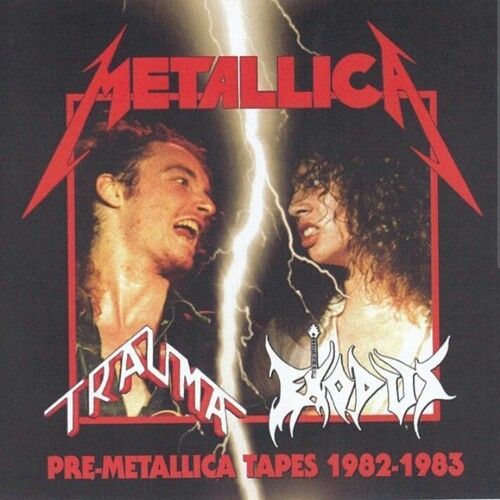

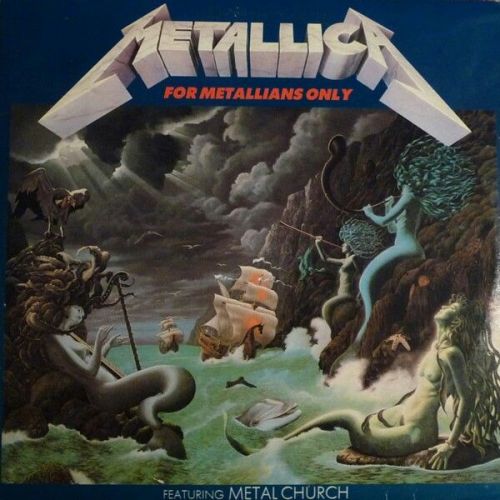
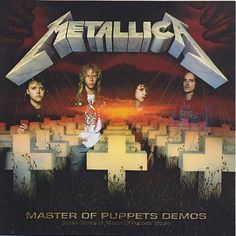
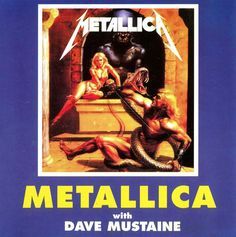
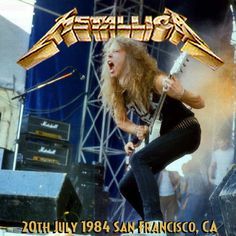

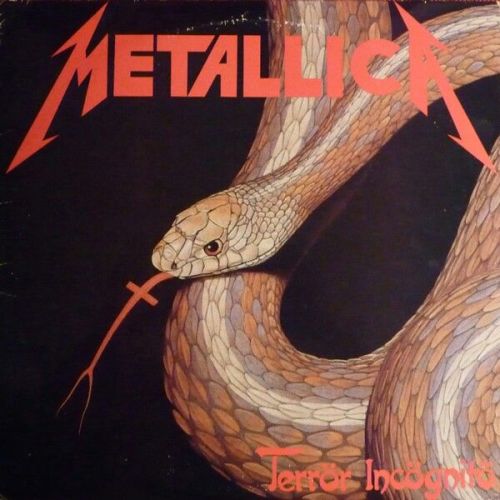
met logo's and promo posters ♡





